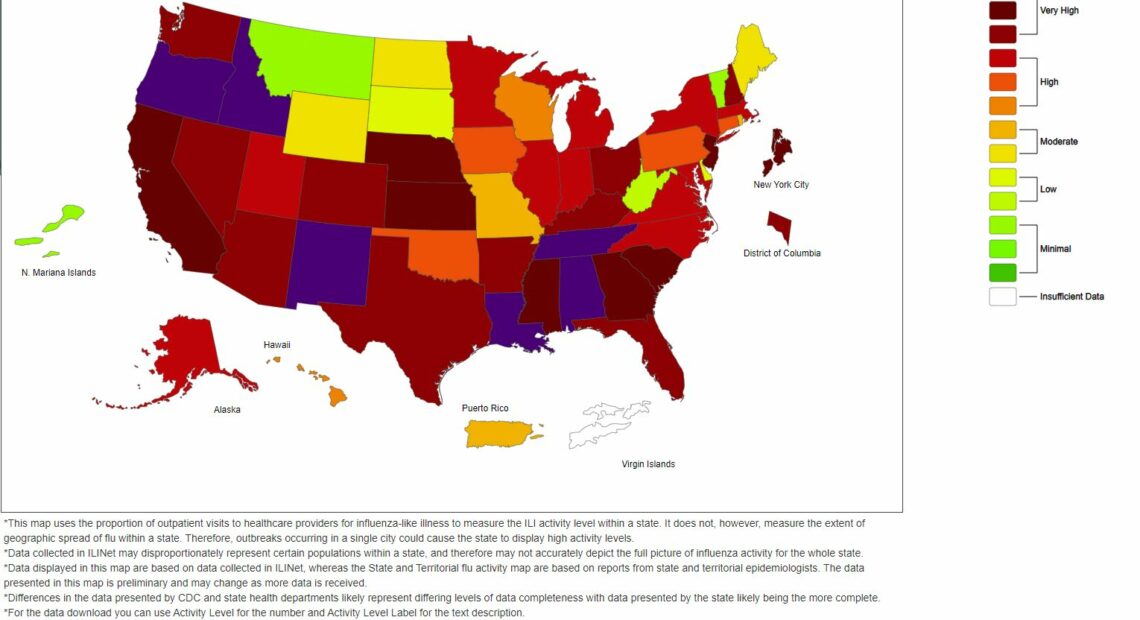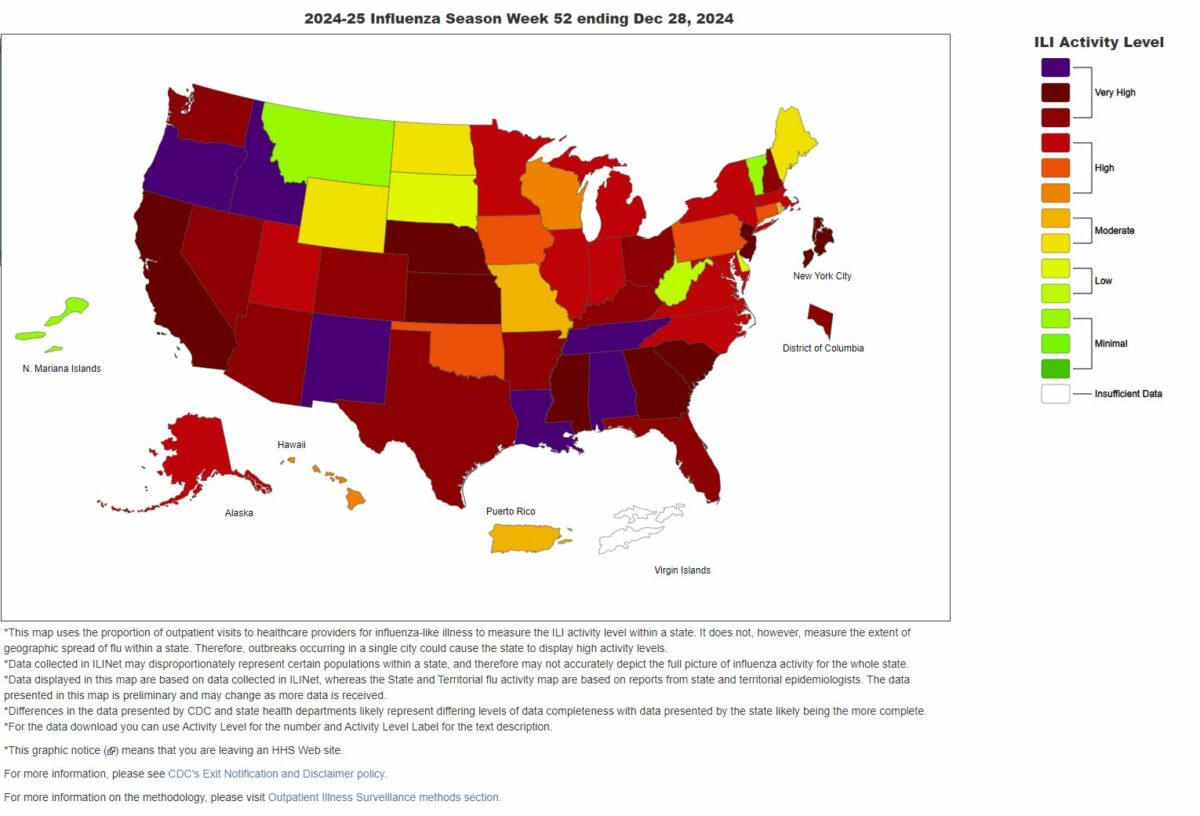
Northwest sees a rise in flu-like illnesses
Listen
(Runtime 0:55)
Read
Reports of influenza-like illnesses have been slowly increasing in the Northwest, health authorities report.
According to the Centers for Disease Control and Prevention, influenza-like illnesses reported at outpatient health care facilities were “very high” for Washington state, Idaho and Oregon.
In Washington, as of the week of Dec. 15 to Dec. 21, 4.5% of visits to clinics participating in the Influenza-like Illness Surveillance Network (ILINet) were due to influenza-like illnesses, which was above the baseline of 2.1%.
Mike Larson, a nurse at Public Health — Idaho North Central District, said emergency room visits and communication with health care partners indicate the state is seeing an uptick in influenza-like illnesses, respiratory syncytial virus, known as RSV, and COVID-19. Some providers are also reporting more severe COVID-19 cases, Larson said.
“There is a little bit of an increase in the number of people who are needing medication, needing a little bit of respiratory support, maybe inhalers, oxygen, things like that,” he said.
TriState Health in Clarkston, Washington, saw around two to five emergency room visits from influenza-like illnesses on most days since late November. A few days spiked with as many as nine visits. That’s according to Brady Woobury, an administrator at Asotin County Health District.
Influenza-like viruses typically increase following the holidays and the new year because more people are exposed, meaning that number could still grow.
Although the first flu spikes usually happen around November and December, it’s still worth getting vaccinated if you haven’t yet, Woodbury said.
“We often see it again in the February timeframe. It would be a good idea to get your flu shot now if you haven’t received one,” he said. “The same with the same with COVID vaccine.”
Although they don’t always prevent people from getting sick, Woodbury said, COVID-19 vaccines are also worthwhile.
“ It really is an effective vaccine that does prevent severe illness,” he said, “and it helps reduce the spread of COVID.”
As of mid-December, Whitman County also had reported 85 cases of pertussis, or whooping cough, which can be life-threatening to babies under one year old and people who are immunocompromised
In addition to respiratory viruses, norovirus, which causes gastrointestinal symptoms including vomiting and diarrhea, is increasing across the U.S.
Regardless of the virus, many guidelines to prevent illness are the same.
“Wash your hands, wash your hands, wash your hands,” Larson said. “All of these illnesses could be picked up by touching a surface and then either touching your eyes, your nose (or) your mouth.”
Covering coughs and sneezes, staying home if you’re sick and masking if you have to leave the house when ill can all prevent the spread of disease.
















